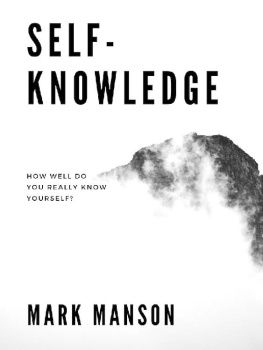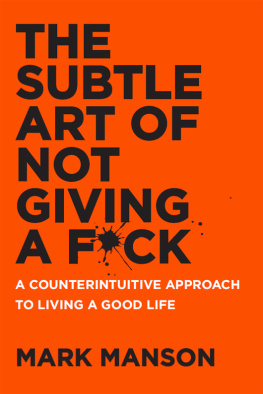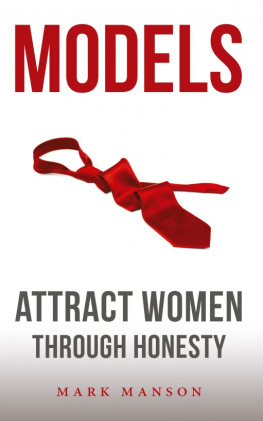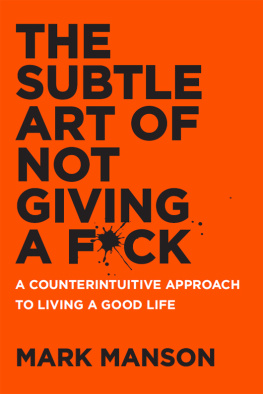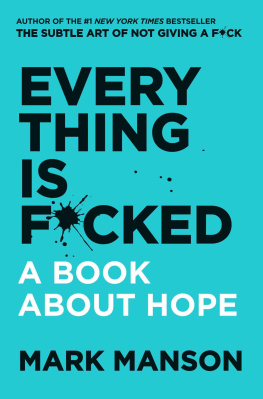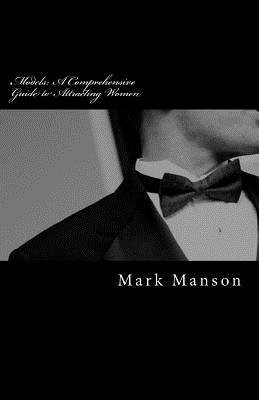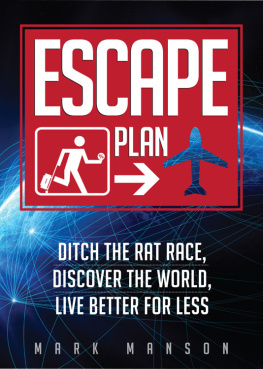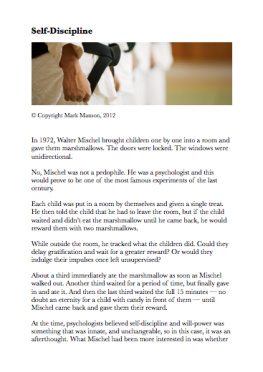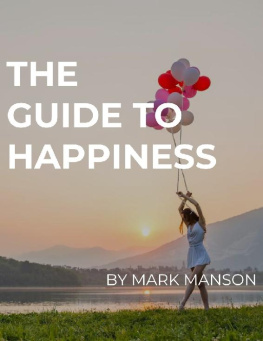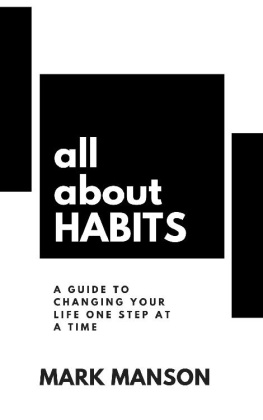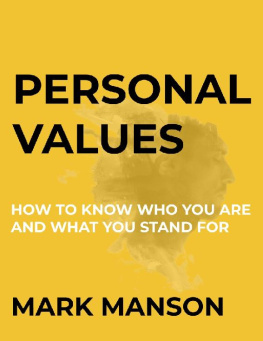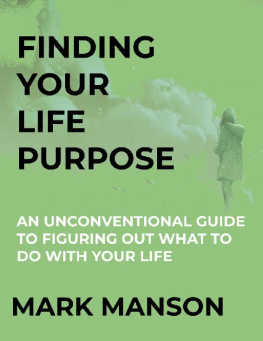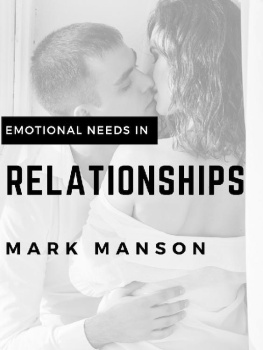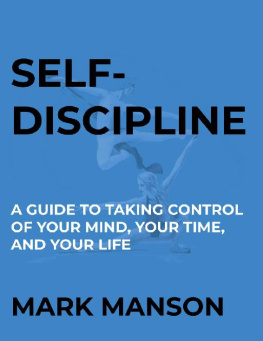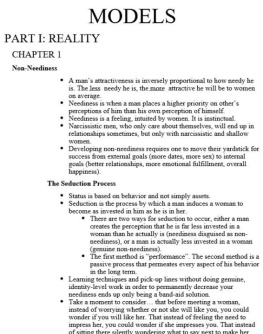Mark Manson - Self-Knowledge: How Well Do You Really Know Yourself?
Here you can read online Mark Manson - Self-Knowledge: How Well Do You Really Know Yourself? full text of the book (entire story) in english for free. Download pdf and epub, get meaning, cover and reviews about this ebook. year: 2018, genre: Religion. Description of the work, (preface) as well as reviews are available. Best literature library LitArk.com created for fans of good reading and offers a wide selection of genres:
Romance novel
Science fiction
Adventure
Detective
Science
History
Home and family
Prose
Art
Politics
Computer
Non-fiction
Religion
Business
Children
Humor
Choose a favorite category and find really read worthwhile books. Enjoy immersion in the world of imagination, feel the emotions of the characters or learn something new for yourself, make an fascinating discovery.
- Book:Self-Knowledge: How Well Do You Really Know Yourself?
- Author:
- Genre:
- Year:2018
- Rating:4 / 5
- Favourites:Add to favourites
- Your mark:
- 80
- 1
- 2
- 3
- 4
- 5
Self-Knowledge: How Well Do You Really Know Yourself?: summary, description and annotation
We offer to read an annotation, description, summary or preface (depends on what the author of the book "Self-Knowledge: How Well Do You Really Know Yourself?" wrote himself). If you haven't found the necessary information about the book — write in the comments, we will try to find it.
Self-Knowledge: How Well Do You Really Know Yourself? — read online for free the complete book (whole text) full work
Below is the text of the book, divided by pages. System saving the place of the last page read, allows you to conveniently read the book "Self-Knowledge: How Well Do You Really Know Yourself?" online for free, without having to search again every time where you left off. Put a bookmark, and you can go to the page where you finished reading at any time.
Font size:
Interval:
Bookmark:
MARKMANSON.NET
2018
Mark Manson
T he Greeks are said to have inscribed Know Thyself on their ancient temples, inviting their people to take a moment and question their motivations and their actions on occasion.
The pursuit of self-knowledge is at the heart of most religions and philosophical pursuits across the world. It seems that an unfortunate side effect of the brains marvelous ability to question everything is the brains ability to question itself.
Who am I? Why do I do the things I do? Can I change?
These are questions that inevitably plague us all in one form or another. And while I dont believe theres ever a permanent answer to any of them, we can become better at investigating ourselves.
(That sounded kind of dirty.)
It turns out that psychology has uncovered numerous ways in which our beliefs about ourselves affect not only our behaviors but our successes in this world. People who believe they are smarter actually do better on tests, even though they arent smarter and havent studied any more than the average student. People who believe they are given an energy drink are able to lift more weight than normal, even though the drink they were given contained nothing special. People who believe they need less sleep actually do perform better under less sleep than those who do not.
Beliefs are powerful. And because they are powerful, we must learn to train our mind to observe them and question them.
This short ebook contains three ideas that are designed to help you do that:
- Your Two Minds
- Believe Whats Helpful, Not Whats True
- The Prime Belief
Hopefully, by the end, you will find yourself much more comfortable questioning yourself and opening to new ideas you had never considered before.
Enjoy.
Close your eyes. Wait, dont close them yet. Finish reading this paragraph, then close them. OK, close your eyes and try to think about nothing for 30 seconds.
Ready? Go.
(Waiting)
Wasnt easy was it? Chances are various thoughts and images kept popping into your head.
Now, I want you to try the same exercise again, except this time I want you to pay attention to which specific thoughts and images pop up. Try to keep track of them. Notice them, note what they are, and then let them go. See if you can do that for a minute.
Ready? Go.
(Waiting)
What were they? Maybe that fight you had with your brother the other day. Or the assignment thats due tomorrow but youre reading this instead. Or maybe a movie you saw recently, or some sort of fantasy.
Chances are you were able to notice them for a little while but then you quickly find yourself getting sucked into thinking about them involuntarily.
If youve ever meditated , even a little bit, youre familiar with the experience you just had.
You closed your eyes and tried to shut your mind up, even if for 30 seconds, and despite your best efforts, the spigot of thought vomit just kept pouring out.
If youve ever attended meditation retreats or been involved in some movement such as Zen , like I was for a while, they talk a lot about this mind chatter that you suffered through.
And the thing is, that mind chatter never stops. Its always going on in your daily life.
A lot of these eastern philosophies aim to quiet that chatterbox of a mind that we have, and I suppose its useful to put a little damper on it.
But Ive actually found practicing these sorts of techniques have another benefit, a benefit psychologists are just catching on to and starting to write about here in the West.
That benefit is what I call The Two Minds.
When you close your eyes and try to eliminate any thoughts (and fail miserably like the rest of us), obviously your mind is thinking.
But if your mind is thinking, then who is observing the mind thinking?
Whoa
When you did the exercise and your mind kept wandering back to what you had to do at work tomorrow, who was it that was watching your mind worry about work tomorrow?
It was your mind watching your mind.
In Zen they refer to this as the Thinking Mind and the Observing Mind the two minds.
Its a common concept in Buddhism, and new western therapies such as Acceptance and Commitment Therapy (ACT) are catching on to how useful it is and how it can solve a lot of our everyday emotional problems.
Ill break down the Two Minds further and then show you how they can be applied to solving many of the emotional problems we deal with in our everyday lives.
The problem with the Thinking Mind is that we dont completely control it.
Dont believe me? Ill prove it.
Whatever you do, do NOT think about a pink elephant. Dont think about a pink elephant holding a blue umbrella with his trunk. Dont think about a pink elephant once over the next two paragraphs.
OK, not only did you picture a big pink elephant with a blue umbrella, but you were watching yourself think about a pink elephant while you were reading the past two paragraphs.
Your Observing Mind was watching your Thinking Mind indulge in pink elephants repeatedly, despite the fact that it was telling your Thinking Mind NOT to indulge in said elephants.
The Thinking Mind is always chattering away, while youre waiting in line, while youre in bed trying to sleep, when you tune out of conversations with people, or when your mind wanders while reading (which Im sure will happen at least once with me asshole).
Our Thinking Mind is like a horny dog on a leash that keeps running after things, and if we arent used to using our Observing Mind, then our Thinking Mind drags us along with it.
If our Thinking Mind starts obsessing about reaching level 30 in Diablo or the last episode of Mad Men , our Observing Mind is helpless to reign it in. (For a book full of great examples and further explanation, check out The Happiness Trap by Russ Harris.)
The same goes for emotions. And thats actually where most of our suffering comes from not from the negative emotions themselves, but from the fact that were helpless from getting sucked into the negative emotions.
Most of our psychological and emotional stress happens because our Thinking Mind and Observing Mind are fused and we dont recognize the difference.
People ask me all the time, How do I stop feeling so jealous? or How do I stop feeling so angry? or How do I not get nervous in this situation anymore?
The answer: you dont. You cant control your Thinking Mind. Those emotions pop up and will continue to pop up.
The trick is to not fuse with those emotions when they arise.
In Zen, they advise that instead of saying, I am angry, to say, I feel anger. Instead of saying, I am nervous, say, I feel nervousness. Instead of saying, I am jealous, you say, I feel jealousy.
It may seem like a subtle difference, but try it. Think of a time recently when you felt a negative emotion, a lot of anger or nervousness or insecurity.
Now, instead of thinking, I was angry at my brother, think instead, I felt anger towards my brother. You had anger, but you werent controlled by the anger.
Emotions are not a choice. Behavior is.
People ask me all the time, How do you deal with being afraid of failure? or How do you not worry about being rejected?
I deal with fear and worry by dealing with fear and worry.
(I know, thats a really annoying answer.)
I feel the same fear and worry like anyone else does; I just dont identify with it. I accept it and move on despite it.
I dont let my Thinking Mind control me. I defuse from my emotions. When I feel fear, I consciously choose to act despite it. When I feel worry, I consciously choose to act despite it.
For instance, when I have to sit down and write a lot (like writing this PDF), I often get nervous. I want to write something really great because I know thousands of people are going to read it.
Next pageFont size:
Interval:
Bookmark:
Similar books «Self-Knowledge: How Well Do You Really Know Yourself?»
Look at similar books to Self-Knowledge: How Well Do You Really Know Yourself?. We have selected literature similar in name and meaning in the hope of providing readers with more options to find new, interesting, not yet read works.
Discussion, reviews of the book Self-Knowledge: How Well Do You Really Know Yourself? and just readers' own opinions. Leave your comments, write what you think about the work, its meaning or the main characters. Specify what exactly you liked and what you didn't like, and why you think so.

